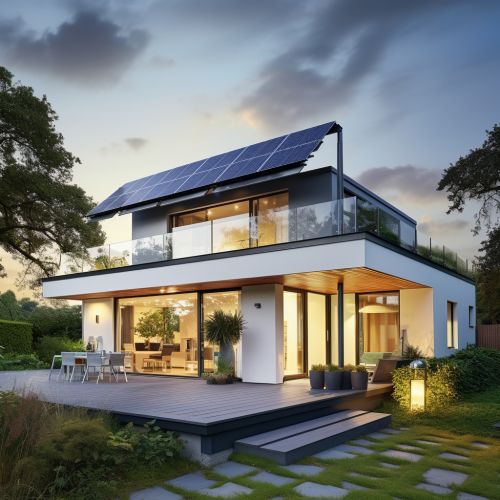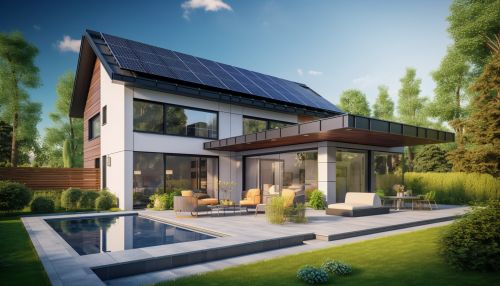Energy Efficiency
Introduction
Energy efficiency refers to the method of reducing the amount of energy required to provide products and services. It is a significant aspect of sustainable development, as it helps to minimize resource usage, decrease greenhouse gas emissions, and promote economic growth.


Understanding Energy Efficiency
Energy efficiency is often associated with the concept of "doing more with less." This means that energy-efficient technologies or processes can provide the same level of output or service while using less energy. This is achieved through a variety of methods, including technological innovation, improved practices, and behavioral changes.
Energy efficiency is a broad term that covers various sectors, including transportation, buildings, industrial processes, and appliances. In each of these sectors, energy efficiency can be improved through a combination of technological advancements, policy measures, and individual actions.
Importance of Energy Efficiency
Energy efficiency plays a crucial role in mitigating climate change, improving energy security, and promoting economic development. By reducing the amount of energy required to perform tasks or provide services, energy efficiency helps to decrease the demand for energy, thereby reducing the need for energy production and the associated environmental impacts.
Energy Efficiency in Different Sectors
Transportation
In the transportation sector, energy efficiency can be improved through various means, such as improving vehicle fuel efficiency, promoting the use of public transportation, and encouraging the use of non-motorized transport modes like cycling and walking.
Buildings
Buildings account for a significant portion of global energy consumption. Energy efficiency in buildings can be improved through various measures, such as improving insulation, using energy-efficient appliances, and implementing energy management systems.
Industrial Processes
Industrial processes often consume large amounts of energy. Energy efficiency in this sector can be improved through various means, such as optimizing production processes, improving equipment efficiency, and implementing energy management systems.
Appliances
Appliances, such as refrigerators, air conditioners, and televisions, can consume a significant amount of energy. Energy efficiency in appliances can be improved through various means, such as using energy-efficient technologies, improving product design, and promoting consumer awareness.
Energy Efficiency Policies and Measures
Various policies and measures can be implemented to promote energy efficiency. These include regulatory measures, such as energy efficiency standards and labeling programs; financial incentives, such as grants and tax credits; and information and education programs, such as energy audits and awareness campaigns.
Challenges and Opportunities
While there are many benefits associated with energy efficiency, there are also challenges that need to be addressed. These include technical and financial barriers, lack of awareness and information, and institutional and regulatory barriers. However, these challenges also present opportunities for innovation and development in the field of energy efficiency.
Conclusion
Energy efficiency is a critical component of sustainable development. By reducing the amount of energy required to provide products and services, it helps to mitigate climate change, improve energy security, and promote economic development. Despite the challenges, there are many opportunities for innovation and development in the field of energy efficiency.
